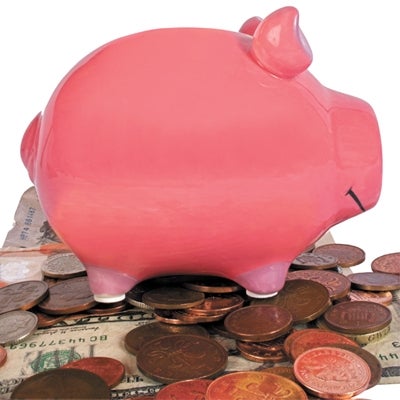Banking The Unbanked | Education and outreach critical to reaching people without checking, savings accounts
Do you have a bank account? That may sound like a silly question, but it’s relevant to local bankers looking to build deposits in a competitive marketplace.
In Massachusetts, according to a new report by the FDIC, 95.9 percent of households have a checking or savings account.
That number is significantly higher than the national average of 92.3 percent, thanks in part to the efforts of the state’s banks and community organizations to help more people get accounts. But the work is far from complete. Among some demographic groups, particularly low-income people, the chances of not having a bank account are far higher.
The Economic Inclusion report, based on household survey data, is an effort by the FDIC to count up the “unbanked” households, which have no checking or savings accounts, and “underbanked” ones, which have a bank account but also use so-called “nonbank services” like check cashing stores, pawn shops or rent-to-own agreements.
Price Of Doing Business
Michael Carroll, vice president of retail operations for Worcester-based AllCom Credit Union, said people who use check cashers or payday loans pay a big price in fees and high interest rates.
“We see people that are just still not using mainstream financial services, and they’re being taken advantage of in many ways,” he said.
In Massachusetts, 4.1 percent of households are unbanked and 11.4 percent are underbanked. Among households with incomes under $15,000, 24.8 percent are unbanked, and another 18.1 percent are underbanked. Nationally, 7.7 percent of all households are unbanked, and 17.9 percent are underbanked. The national numbers for households under $15,000 are 27.1 percent and 22.3 percent.
Timothy Delessio, a community affairs officer with the FDIC, said his office is still crunching the survey numbers to try to figure out why Massachusetts residents are more likely than average to use banks. But he said one factor may be the work that bankers and community groups in the state put into reaching out to low-income people.
In the Worcester area, many banks and credit unions reach out to low-income people through the Worcester EITC Coalition, which runs several sites to help low-wage workers do their taxes and claim the earned income tax credit, if they qualify. In recent years the coalition has teamed up with financial institutions that set up tables on site to open bank accounts. That allows participants to get their refunds quicker through direct deposit and also gives the banks and credit unions the chance to explain what they can offer.
Carroll said taking part in efforts like that one is a continuation of the work that created local credit unions in the first place.
“Immigrants from Canada were having trouble getting banked,” he said. “The traditional bankers didn’t understand their language. The barriers that were present 100 years ago are actually still there today.”
Something For Everyone
JoAnn Morency, senior vice president of retail banking at Worcester’s Commerce Bank & Trust, said Commerce makes a point of having a variety of products, including some that appeal to people with little cash. She said the bank has a variable IRA that takes an initial investment of just $50, and a checking account with no fees at all.
“Sometimes some of the resistance is paying for the account,” she said.
Morency and Carroll both said their institutions also make a point of doing education work in the local schools so that young people will be informed about the advantages of using banks or credit unions. Carroll said many people sour on banks after opening an account without fully understanding what they’re getting into and then running into big fees.
“Whenever you get a new job, what’s the first thing they do? They train you,” Carroll said. “But open a checking account? Sure as long as you have a driver’s license that’s valid.”
Yet objections to banking are not all about a lack of financial knowledge. Melinda Jiusto of The Community Builders, which organizes the tax help and other financial education services at the Plumley Village apartment complex in Worcester, said some people don’t drive and don’t have a bank or credit union branch near their homes. Others find that landlords and other people they do business with prefer money orders to checks.
“Many places like to deal in money orders if people have bounced checks, or they just like to deal in money orders anyway,” she said.
Jiusto said people who don’t have much of a cushion in their checking accounts may have trouble with overdrafts, and some may be more comfortable with just a savings account, using alternative financial services for some purposes. No matter what, though, she said it’s good if banks and credit unions can help people to understand their options.
If getting unbanked households into the banking system is often good for the households, it’s also good for the financial institutions.
Morency said people who set up their first checking accounts with Commerce are likely to stick with the bank as they invest more money or look for a mortgage.
“Absolutely, it’s good business,” she said. “They are people who hopefully will use our products.”











0 Comments